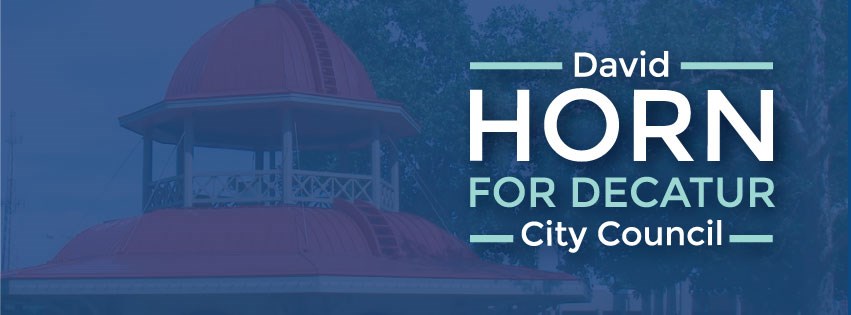
The role of blight removal in reducing Decatur's gun violence
Nationally, removal of blight and the greening of vacant properties has been found to be a factor in reducing gun violence and other criminal activity, improving mental health, and decreasing concerns with personal safety and being outside of one’s home. Blighted buildings may be used by individuals for criminal activities and places where contraband is stored. They may also be targets of arson. Blighted buildings and unmaintained lots give residents a daily reminder of the lack of investment in their neighborhoods, can be demoralizing and erode one’s pride in place, and increase health and safety concerns.
Cities can play a substantial role in improving public health and safety through the removal of blighted structures and greening of blighted lots. Studies have found that improvements to blighted properties and greening of neighborhoods through measures such as removing trash, planting new grass on lots, adding trees, and installing a small wooden fence is associated with reduced gun violence and improved mental health, with individuals less likely to have feelings of depression and worthlessness. A study in Philadelphia (Branas et al. 2016) found that areas in and around vacant buildings with working doors and windows, and clean facades had a 39% reduction in gun violence compared to areas in and around vacant buildings boarded up using traditional plywood coverings.
Thanks to the substantial efforts of our citizens, community organizations, churches, and Decatur Police Department, in 2022, the city of Decatur had a 24% decrease in the number of shootings compared to 2021 from 179 shootings to 136. While shootings decreased significantly last year, the number of shootings remains elevated. For example, compared to 2017, the number of shootings (n=95) is 43% greater. Simultaneously, the city’s neighborhood revitalization initiative showed modest acceleration in 2022 compared to 2021, although significant efforts are still needed. The number of demolitions rose from 36 in 2021 to 64 in 2022 (+78%). Moreover, the city spent ~$550,000 on mowing vacant lots, presumably resulting in a reduction in the number of weed violations issued from 2,339 in 2021 to 1,530 in 2022 (+35%).
If the results of national studies are applicable to Decatur, it is reasonable to assume that Decatur’s neighborhood revitalization efforts have played a role in improving public health and safety, and that acceleration of the city’s neighborhood revitalization efforts should lead to even greater improvements. Furthermore, compared to other methods of reducing violence in urban areas, greening of vacant lots and improvements to abandoned buildings is considered to cost effective and scalable.
The city of Decatur has the financial resources to substantially accelerate the removal of properties in disrepair, to repair properties that can be rehabilitated, and to make modest improvements to vacant lots. Specifically, there is ~$25.6 million in the 2023 budget that could be allocated for neighborhood revitalization initiatives including reallocation of remaining American Rescue Plan (ARP), adoption of a 60-day cash reserve, and having the public works department advocate for more innovative, less expensive solutions to infrastructure challenges.
